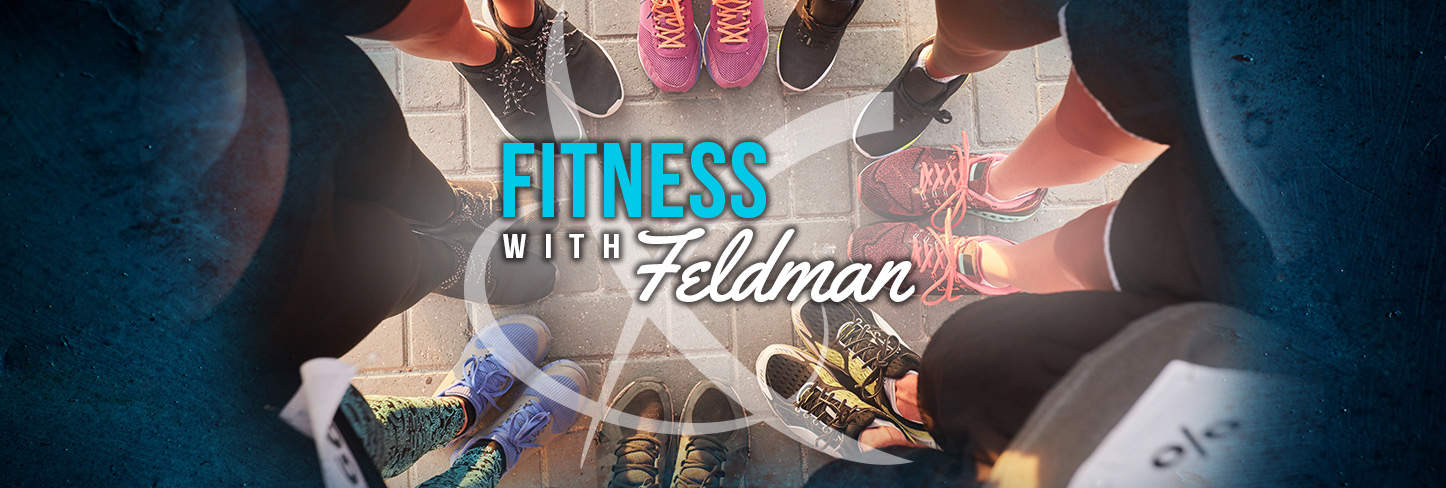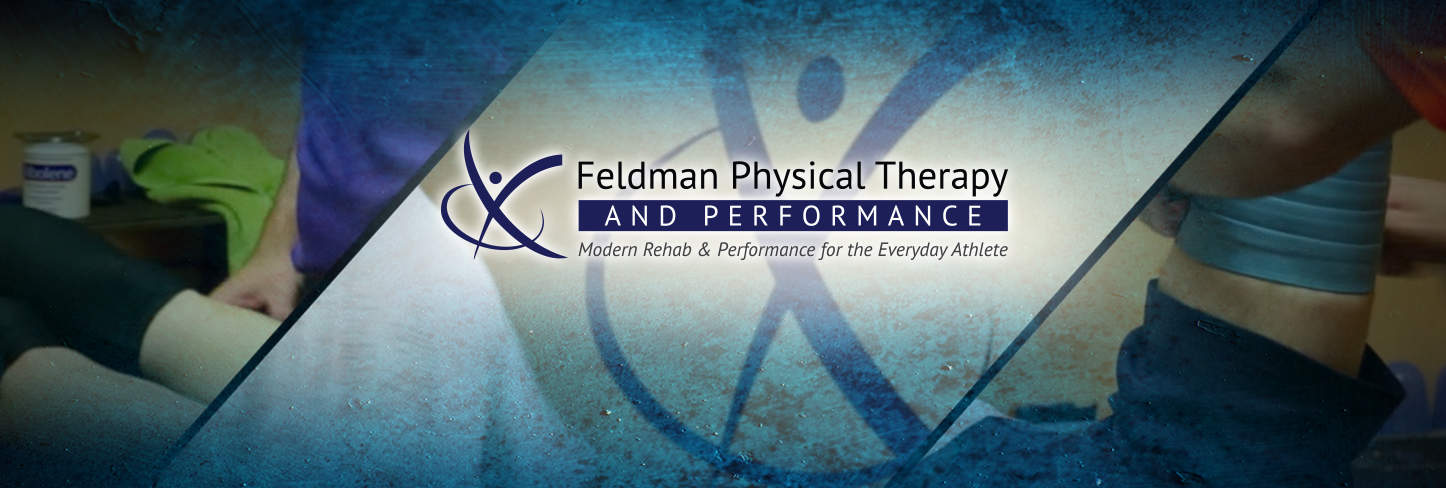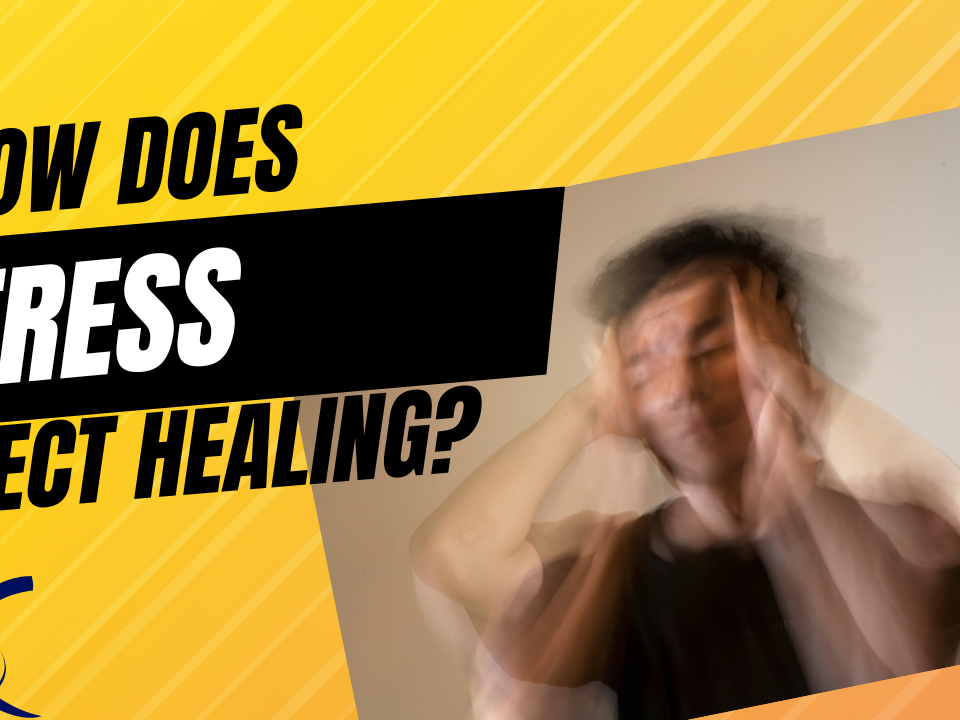
Fitness With Feldman – Episode 29 – Adding Strength
January 26, 2017
Fitness With Feldman – Episode 30 Creating Your Self Care Routine
February 2, 2017Resolve That Shoulder Pain
 Today I want to take a few minutes to talk shoulder injuries. Like many other people, I’ve fallen victim to the classic pitfalls that plague a lot of active shoulders.
Today I want to take a few minutes to talk shoulder injuries. Like many other people, I’ve fallen victim to the classic pitfalls that plague a lot of active shoulders.
The shoulder has a lot of complexity under the surface and, while the joint is subject to traumatic injuries, I’d like to focus on the training-related injuries that creep up on us and can linger for months, even years. A basic understanding can go a long way and help program a better workout routine to keep shoulders mobile and healthy.
First, let’s start with basic anatomy. The shoulder isn’t actually a “ball and socket” joint. It’s more like a golf ball and a tee. Because there isn’t as much bony coverage as a typical socket provides, a lot of soft tissue, like muscles, ligaments and tendons, are needed to provide ample stability as the arm is moved. Additionally, the shoulder’s rotator cuff (four muscles on the shoulder blade), trapezius (three different muscle fiber directions), serratus anterior, lats and rhomboids are all very important yet often forgotten muscles involved in shoulder health. When trained improperly or ignored, the resulting dysfunction in these muscles will lead to an increased risk of injury.
Next, it’s important to highlight a common training mistake: too much pushing and not enough pulling. This was me, after college and is one of the main reasons I ended up with tight and imbalanced shoulder joints, which ultimately led to rotator cuff injuries and limited overhead mobility. Basically, my focus on bench press and bicep exercises left my shoulder blade unable to maintain a proper position as I moved my arm. That was a big problem for me and is for anyone else that experiences it, because without adequate stability, a lot of stress is put on the shoulder’s smaller muscles, such as the rotator cuff and biceps tendon.
It is also common for people to omit shoulder training that involves moving their arms over their head or in front of their body. While this is a typical position during many arm exercises, it is also a compromising one for the shoulder, based on its anatomy. Ultimately, a lack of training shoulders at these vulnerable positions means an increased risk of injury will develop as the workout progresses. The more demanding the movement (faster or heavier) and the more aggressive the position (outstretched or overhead), the more efficient the shoulder’s soft tissues must be.
So, what’s the fix? Strengthen the muscles around the shoulder blade. Because the muscles’ main job is to keep the shoulder blade in place during arm motions, the first tip is to pull twice as much as you push when exercising your shoulders. Before you increase weights, increase volume; that is, the number of reps per exercise. It is much safer and easier to build (shoulder) strength on a stable foundation (the shoulder blade) than an unsteady one. Pulls are horizontal or vertical row variations for your rhomboids, lats, traps and rear deltoids and are important for shoulder blade stability/function. Pushes can also be horizontal or vertical and are movements such as bench presses, pushups or shoulder presses. When designing your program, be sure to have twice as much pulling volume as you have pushing volume.
It is also helpful to become friendly with kettlebells. We use them often in our practice because their unique shape allows for some highly efficient shoulder-stability exercises. When held in the “bell up” position, a kettlebell becomes top heavy, automatically targeting the shoulder stabilizers at end range. This translates to better stability during other typical upper body exercises. Walking the “Waiter’s Carry,” “The Windmill,” laying “Kettlebell Alphabets” and “laying half turn” are some of our favorite kettlebell exercises. If you’re feeling frisky, try including “Turkish Get Ups” into your morning wake up routine, after coffee of course. If you aren’t familiar with these exercises, check out our video library, www.feldmanphysicaltherapy.com/video-gallery. .
Shoulder health comes down to shoulder stability. You wouldn’t drive your car if the wheels’ lug nuts were loose, would you? Make sure your shoulder blades are stable before you start pushing more weight on them or asking them to handle more intensity and those nagging rotator cuff issues and biceps tendon tweaks will become less of a reality.





